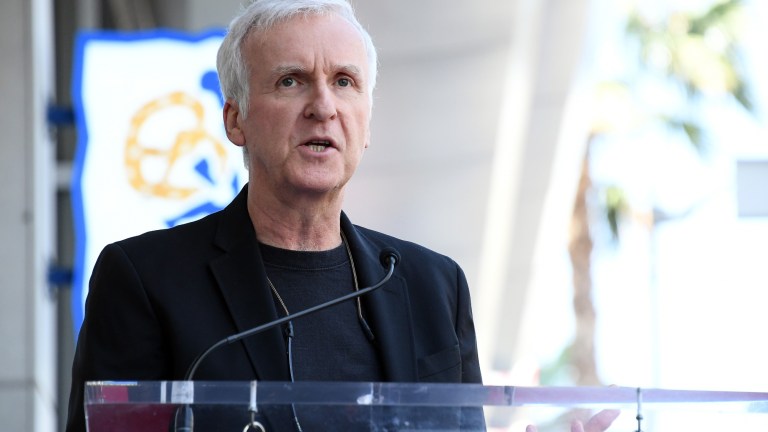James Cameron Is Tired of Answering This One Question About His Movies
James Cameron may have made some of the most expensive movies of all time, but for him, even Titanic and Avatar are small character dramas.

In 1991, director James Cameron released Terminator 2: Judgment Day, the most expensive movie ever made. In 1994, Cameron released True Lies, the most expensive movie ever made. In 1997, Cameron released Titanic, the most expensive movie ever made. In 2009, Cameron released Avatar, the most expensive movie ever made. Even if the sequel Avatar: The Way of Water won’t set a similar record when it hits theaters next month, one thing is abundantly clear: James Cameron makes big movies.
But if you asked him about his giant-sized movies, the famously cantankerous director would probably take you to task. “I’m way over this whole thing, this question that I get asked all the time,” he vented in a conversation with GQ this week, in response to those who’ve asked him whether he’d ever just make “a little movie with just a couple of actors.” Cameron countered, “Yeah, I make that movie every time I make a big movie.” That might seem like a bold and unlikely claim, but he points out that “On a given day I might be doing a scene with two actors in a room, me handholding the camera. How is that any different than the smallest independent film? It’s just that maybe the next day I’m doing a battle with 40,000 people. I like to do that too.”
It’s hard to argue with his logic. While we all remember fantastic set pieces like the highway chase scene in Terminator 2 or the ship sinking in Titanic, it tends to be the smaller conversations that stay with people. It’s John Connor teaching the T-800 to say “Hasta La Vista Baby” or Jack sacrificing himself for Rose.
For Cameron, even his gigantic movies are fundamentally personal because they come from an intimate place: his dreams. “I have my own private streaming service that’s better than any of that shit out there,” the director boasted in his usual style. “And it runs every night for free.”
According to the director, dreams are the source of some of his most notable works, including Avatar: “I woke up after dreaming of this kind of bioluminescent forest with these trees that look kind of like fiber-optic lamps and this river that was glowing bioluminescent particles and kind of purple moss on the ground that lit up when you walked on it,” Cameron said, describing an experience from when he was a teenager.
Thanks to this approach, Cameron can keep his movies grounded in real emotion and personal stakes. That’s most clear in the familial relationships found in Terminator 2 and Aliens, in which hardened killers become parents to wayward kids. The Way of Water will continue this theme by giving the Na’vi heroes from the first movie their own teenage children. For Cameron, this thematic focus helps his films stand out from the Marvel and DC crowd: “I was consciously thinking to myself, ‘Okay, all these superheroes, they never have kids. They never really have to deal with the real things that hold you down and give you feet of clay in the real world.'”
By telling stories about families holding together, parents protecting their children while letting them grow, Cameron imbues his billion-dollar blockbusters with an indie movie feel. And God help the person who asks him about it again or says otherwise.
Avatar: The Way of Water is out in theaters on Dec. 16.
